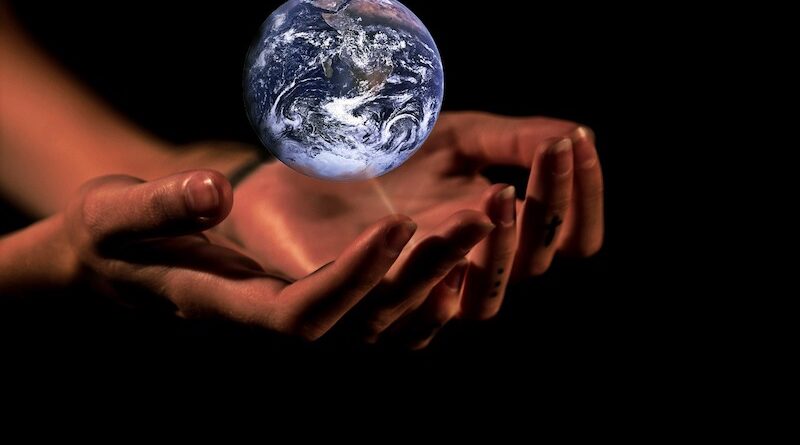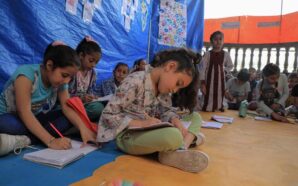As we embark on the 16 Days of Activism Against Gender-Based Violence, Oxfam is compelled to address the upcoming 28th United Nations Climate Change Conference (COP28) in Dubai.
There can be no doubt that the world finds itself at a pivotal moment that demands our collective action. Gender-based violence and the climate crisis are all firmly rooted in patriarchy, colonialism, inequality, exploitation, and greed.
Gender-based violence in South Africa is inextricably linked to decades and generations of systemic violence perpetrated in pursuit of land grabs, forced labour, and the exploitation of rural women and children as cheap labour or unpaid labour.
Black women and girls were not spared the lash of the policemen’s whip, nor were they protected by racist laws that did not recognize them as adults or as women, but viewed them as perpetual minors in need of restraint. Violence was the inevitable method of restraint on farms, in cities and in homes.
No single country in the world has eradicated gender-based violence (GBV) despite decades of efforts. South Africa is no exception; the scourge of GBV continues.
Add to this the climate crisis, which is fuelling inequality and driving hunger, reinforcing gendered inequalities, and further exacerbating the levels of violence against women, trans people, and non-binary people.
Climate destruction is undermining food security and driving a food crisis that is hitting the poorest people and countries the hardest. An estimated 58 million people in southern Africa are facing food insecurity.
“Extreme weather events are already significantly hampering agricultural production, and this is likely to get much worse. For approximately 500 million smallholder farmers worldwide – many of them women – who rely on agriculture as their main source of food and income, the impact will be nothing short of catastrophic”, according to Climate Equality: A planet for the 99% report, released by Oxfam this week.
And while millions face staggering inequality, droughts, floods, failing crops and hunger, the rich get richer. In the United States, the top 1% own 54% of stocks held by Americans; in South Africa, the top 1% own over 95%.
In all SADC countries, the top one percent earn more than 14 percent of the national income of their countries. The five wealthiest men in SADC – three in South Africa and one each in Tanzania and Zimbabwe – saw their wealth expand from $13.5bn in March 2020 to $16.7bn by September 2021.
Agricultural labourers, Indigenous and Black communities, and feminist movements, are at the forefront of the struggles to protect land, natural resources, and the planet while simultaneously fighting to protect women’s labour rights and endemic gender-based violence.
And with this, civic spaces – so critical to democracies – continue to shrink as governments and corporations, along with anti-feminist and anti-environment lobbies are cracking down on these movements.
Women environmental activists and women rights defenders continue to be harassed, murdered or incarcerated, while the real perpetrators – rich and powerful men of this planet, get the seat at decision-making tables in the governments, international bodies, and even at the upcoming COP28.
As we commemorate the 16 Days of Activism Against Gender-Based Violence from the 25th of November – which will continue throughout the deliberations at COP28 commencing on the 30th – our thoughts, campaigns and actions around GBV should reflect the interconnectedness for the struggle for gender equality, the struggle to eradicate gender based violence, and the struggle for climate equality.
Now, more than ever before, it is clear that we cannot build a planet free of poverty, violence, and oppression without collective action against GBV, rising inequality, and the climate crisis that is fueling it.
As we commemorate the 16 Days of Activism Against Gender-Based Violence, Oxfamcalls on President Cyril Ramaphosa and the South African delegation at COP28 to remember that the climate crisis, rising inequality, and gender-based-violence are not separate and unrelated.
The struggle for gender equality is inextricably tied to the struggle for economic and climate equality.
Oxfam calls on President Ramaphosa and the COP28 delegation to bear in mind that eradicating gender-based violence is a critical step in building just economies and societies that work for all, not just the privileged few. Oxfam calls on President Ramaphosa and the COP28 delegation to ensure that all action plans to which they commit South Africa at COP28 , should:
- Have clear policies and legal commitments to protect women rights defenders, especially from energy and extractive companies.
- Ensure that women and communities impacted by energy and extractive industries have access to effective, safe, and accountable grievance and redress mechanisms.
- Ensure direct, flexible and long-term funding for local communities and women-led climate initiatives in fragile and conflict-affected countries.
- Create and execute gender-responsive migration policies, services and laws to protect migrant women and girls that address GBV and trafficking in the context of climate change.
- Effectively integrate Sexual and Reproductive Health and Rights (SRHR) into the disaster risk management process and national climate action plans.
- Recognise and value traditional knowledge of women related to climate adaptation, governance, and agriculture while making climate decisions.
- Guarantee safe, equal, and meaningful participation of youth, women, trans people and non-binary people in natural resource governance, with power in planning process and utilisation of revenues from extractive industries.
- Protect women’s and their communities’ land rights in climate mitigation activities related to land as it affects their food security and livelihoods.
- Women, agricultural labourers, and Indigenous and Black communities should lead the decisions on land-based solutions to climate change at all levels of governance.
- Acknowledge that climate policies can be a reflection of patriarchal values and demand gender justice in all climate negotiations.
- Adopt a wealth tax on the super-rich that tackles the climate crisis and funds feminist economic alternatives to climate change.











